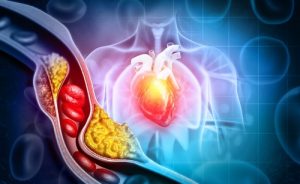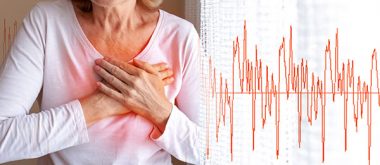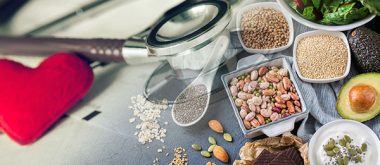Good news for coffee lovers! Besides giving you an energy boost, researchers have also found that coffee helps reduce the chances of heart disease.
One study in the American Heart Association Journal states that people who drink more coffee are less likely to suffer heart failure. Studies from the American College of Cardiology have also found that drinking approximately two to three cups of coffee daily helps lower the chances of getting cardiovascular disease and dangerous heart rhythms and helps increase lifespan.
How Does Heart Diseases Occur?
Cardiovascular disease affects the heart and blood vessels. Cardiovascular disease mainly happens when plaques or fatty deposits with calcium, cholesterol and fibrin accumulate on the inner walls of the blood vessels. Fibrin is the substance that causes blood clotting, one of the main reasons why people suffer strokes.
The plaque and fat buildup, also known as atherosclerosis in the arteries, also causes them to narrow, resulting in partial or total blockage. That might eventually cause stroke, heart attack or tissue death in the ends, known as gangrene.
High levels of LDL, also known as bad cholesterol, increase the formation of atherosclerosis, while high levels of HDL cholesterol, or good cholesterol, helps protect against that. HDL transports LDL away from your arteries to the liver, where it is broken down and removed from the body.

SREBP2 (sterol regulatory element-binding protein 2) helps regulate your cholesterol levels. When calcium and cholesterol levels in your cells decrease, that activates SREBP2, which goes to the cell nucleus to activate genes that influence the production of cholesterol. Some of those genes are:
- 3-hydroxy-3-methylglutaryl coenzyme-A (HMG-CoA) reductase – Controls cholesterol production rate.
- LDL receptors – Transport LDL cholesterol into the cells from the blood.
- PCSK9 – Controls the amount of LDLRs.
The liver creates receptors on its surface, also known as parking slots for the bad cholesterol. When the LDL molecules get to those parking spots, the liver absorbs the cholesterol from them and makes vitamin D, bile and other substances.
According to Emeritus Lipid Consultants, PCSK9 protects your liver from receiving too much cholesterol. PCSK9 goes to the parking spots and destroys the excess LDLRs.
How Does Coffee Help with Heart Disease?
According to research findings from a lab experiment in the Nature Communications journal, caffeine helps:
- Block the production of PCSK9 in the liver and PCSK9 gene expression.
- Prevent PCSK9 expression in the liver and SREBP2 activation.
- Increase LDLRs and inhibit PCSK9 protein secretion.
A combination of these actions helps increase the transportation of LDL cholesterol into the liver cells from the blood. To help put these findings to the test, researchers administered a 400 mg dose of coffee to healthy and fasting individuals to see how the caffeine affected PCSK9 levels. This is the maximum dose of coffee recommended by the FDA per day.
After two hours, the caffeine can cause a 35% decrease in PCSK9 proteins, and after four hours, the decrease was at 21%. Participants who did not take the coffee did not exhibit any changes in their PCSK9 protein levels.

According to the researchers, one cup of coffee contains around 80-100 mg of caffeine, which means people should consume a maximum of four to five cups. Another research showed that the benefits of coffee for the prevention of heart disease fit on a u-shaped curve. This means that the maximum benefits are seen when someone consumes three cups but starts declining with an increased intake.
Other Ways to Keep Your Heart Healthy
In addition to drinking coffee, other ways that you can improve your heart health include:
- Maintaining healthy weight.
- Physical exercises.
- Eating a balanced diet.
- Avoiding smoking and too much alcohol.
- Managing stress.
- Limiting the intake of sugary, fatty and processed foods.
Conclusion
While coffee has benefits in reducing heart disease, you should know that there are some side effects you might experience with too much coffee intake. You might experience jitters, headaches or addiction in the long term. Therefore, you must keep your coffee intake moderate and avoid taking it before bed to ensure it does not affect your sleep pattern.





